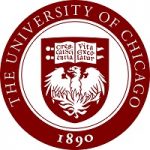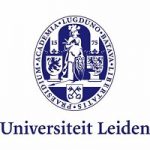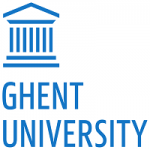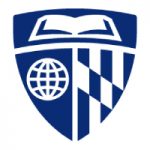项目介绍
Theoretically sophisticated, comparative, and interdisciplinary approaches are a hallmark of the doctoral program at the University of Chicago. The Department of History offers a comprehensive range of fields of study. We strongly encourage students to take courses outside of History and to compose one of three oral fields in a comparative discipline. A rich series of interdisciplinary workshops and conferences bring together students and faculty from throughout the university for intellectual exchange.
Our distinguished faculty works closely with students in graduate seminars, colloquia, and tutorials that form the core of advanced training at Chicago. As in any program, a student is expected to learn to read critically, to analyze primary sources skillfully, and to write rigorously. At Chicago we also expect students to produce work that significantly advances the frontiers of their field.
The full requirements and recommendations for the Graduate Program in History are available in the Guidelines to the M.A. and Ph.D. Curricula. Current students and advisors should refer to the Guidelines and the Canvas History Graduate Student page for detailed requirements, forms, and instructions.
FIRST-YEAR AND SECOND-YEAR HIGHLIGHTS
- Students take twelve graduate-level courses (for A or B grades): a two-quarter history research seminar, and ten other courses both in and outside of the department. At least three of these courses are graduate colloquia, and up to three may be pass/fail reading courses for orals preparation. Current students should consult the Guidelines for details of course requirements.
- First-year students complete a substantial research paper due at the end of Winter Quarter as part of the two-quarter History Seminar.
- Second-year students are required to complete a research paper under the supervision of their faculty advisor during Autumn or Winter Quarter.
- Students must high pass (P+) at least one foreign-language translation examination. Details on the timing and requirements are below. Students who have taken the TOEFL exam and whose native language is their language of research may waive the language exam.
- Students take their oral field examinations by June 15th of their second year.
LANGUAGE REQUIREMENT
The department requires a high pass (P+) on one or more language translation examinations. Students must take an examination administered through the department during the first quarter of residence. Students who do not high pass on the first attempt should devote special attention to improving their skill and are required to repeat the exam at least annually until a high pass is achieved. It is mandatory to high pass in at least one language examination before the beginning of the second academic year. In fields where more than one language is required, the additional requirement(s) must be satisfied before the proposal hearing. See the Guidelines for more details on language examinations.
| Field | Languages Required |
| Africa | At least one European and one African language to be determined in consultation with the advisor. |
| Ancient* | French and German (one high pass, one pass); Greek and Latin (by departmental certification or with a grade of pass on the CLC examinations) |
| Britain | French, German, or Latin |
| Byzantine* | French and German (one high pass, one pass); Latin and Byzantine Greek by departmental certification |
| Caribbean and Atlantic World | Dutch, French, Portuguese, or Spanish |
| Early Modern Europe | High pass in the primary language of research; a pass in one other modern European language |
| East Asia | High pass in the primary language of research: Chinese (traditional characters), Japanese, or Korean |
| Europe | High pass in the primary modern European language of research; a grade of pass in one other approved language; normally, the second language will be in a different language group from the first, except as needed for research reasons. |
| History of Science | French or German (high pass in one), but it is assumed students know both. |
| International | At least one foreign language determined by subarea of interest. |
| Latin America | Spanish and Portuguese (one high pass, one pass) It is recommended that most students take PORT 12200, Portuguese for Spanish Speakers, to build competence in Portuguese. |
| Medieval Europe | Latin, Arabic, Hebrew, or another primary research language (high pass); Two additional modern languages (pass) |
| Middle East/Islam*^ | One of the following: Modern Arabic, French, German, Hebrew, Persian, Russian, Turkish, or Ottoman Turkish |
| Modern Jewish | Hebrew and one other relevant research langugage (one high pass, one pass) |
| Russia*^ | Russian or any relevant language. For a PhD in Russian history, however, knowledge of Russian is mandatory. |
| South Asia*^ | One of the following: Bengali, French, German, Hindi, Persian, Sanskrit, Tamil, or Urdu |
| United States | Any foreign language |
*For fields with extensive language training, students may petition for a one-year postponement of the language examination.
^If the language requirement is met with French or German, it is assumed that the student will also acquire knowledge of area language(s) sufficient for research purposes.
ORAL FIELDS HIGHLIGHTS
- The oral fields readings and examination qualify students to teach and to conduct doctoral research.
- Orals are taken by June 15th of the second year in residence.
- All students prepare three fields. The examination is oral, lasts two hours, and is graded pass or fail. Examination committees consist of a chair from the Department of History faculty and two additional University of Chicago faculty, usually, but not always, from the department.
- Students compose the three fields in close consultation with their committee chair. This recognizes that each field of concentration has distinct criteria for determining what reading is fundamental to qualify students to teach and to conduct doctoral research.
- Field lists have a maximum of fifty books; four articles or book chapters count as one book. For the purpose of reading and the examination, all fields are considered equal.
PROPOSAL
- During the proposal stage, students form their dissertation committees. Committees generally have three members; a fourth is allowed in certain cases. The committee chair must be a member of the Department of History faculty. The second reader must be a member of the departmental faculty or its associate faculty. Additional committee members may be professors in the department, in other university departments, or at another institution. Consult the Guidelines for the M.A. and Ph.D. Curricula for details on committee formation.
- Students must hold a proposal hearing by the end of the third year in residence.
TEACHING
- All students are required to have three mentored teaching experiences.
- Mentored teaching experiences may include the following: Teaching Assistantships, Core Internships, Lectureships, Co-teaching with faculty.
- Consult the Guidelines for the M.A. and Ph.D. Curricula for additional information on required teaching.
DISSERTATION
- Following the approval of the proposal, the divisional dean of students advances the student to candidacy for the doctoral degree. (This stage is informally known as ABD, “all but degree.”)
- The student and the dissertation chair are responsible for assuring that the dissertation follows an acceptable academic style—be it The Chicago Manual of Style, Turabian’s A Manual for Writers of Term Papers, Theses, and Dissertations, or the accepted style in the field. A general rule of thumb is pick a style early and use it consistently.
- The University of Chicago’s Dissertation Office provides a number of resources on formatting, copyrights, and embargo policies.
- The American Historical Association’s Statement on Standards of Professional Conduct includes useful sections on conducting interviews, documenting sources, scholarship, and other matters important to the professional historian.
FINAL DEFENSE OF THE DISSERTATION
- The final requirement of the doctoral program is an oral defense of the dissertation.
- Defenses are held with the student’s committee in attendance. The defense is always open to the faculty. It may be open to the public.
- The committee grades the defense (pass with distinction, pass, or fail) and decides what type of revisions (none, minor, or significant) are needed before the students can submit the dissertation to the Dissertation Office.
- Graduation is within two quarters of the defense for no or minor revisions. Graduation is within three quarters of the defense for significant revisions.
- The dissertation chair and the departmental chair give final approval for the deposit of the dissertation after all requested revisions have been made.
- The department requires that the student submit the dissertation through the Dissertation Office on the Monday prior to the Dissertation Office deadlines in the quarter of submission.
GRADUATION
- The doctoral degree can be taken in any quarter. Instructions for applying to the degree are found on the student Canvas site.
- The university holds convocation at the end of Spring Quarter.
JOINT DEGREE
Joint degrees are rare, but students may apply for a joint degree on an ad hoc basis. The application process begins with the student’s dean of students office. The faculty members who work with the student should strongly support the need for a joint degree. Students from other departments should read the Joint Ph.D. Degree Guidelines (PDF). Students should apply in the late winter or early spring quarter so the Graduate Student Affairs Committee can review the file in its annual student review in late May or early June.
HISTORY MA DEGREE FOR PHD STUDENTS FROM OTHER UNIVERSITY OF CHICAGO PHD PROGRAMS
In rare cases, the university allows students from another University of Chicago PhD program to receive an MA from an alternate program. Students wishing to receive an MA from history should petition the Graduate Student Affairs Committee in Autumn Quarter. For more information contact the graduate affairs administrator.
联系方式
电话: 773.702.1234相关项目推荐
KD博士实时收录全球顶尖院校的博士项目,总有一个项目等着你!






